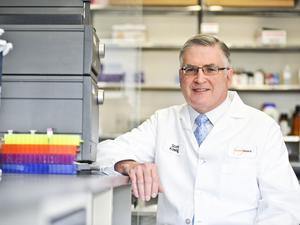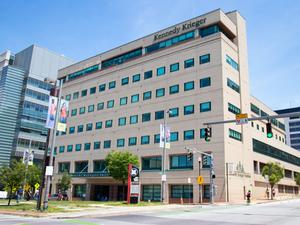
An Annapolis company that hopes to create a non-drug treatment for migraine and mood disorders has raised $4 million of a $7 million series A round.
The funding round will help Mi-Helper conduct clinical studies to get U.S. Food and Drug Administration clearance for its eponymous device. Mi-Helper has already gone through clinical studies at the Mayo Clinic, Michigan State University and Atrium Health and CEO Steve Schaefer plans for the device to hit the market in 2024. The company is planning to conduct a large at-home study to see if patients will be able to use the device at home instead of at a doctor’s office.
The $4 million stage of the round, which closed on Oct. 4, is led by SPRIM Global, the Maryland Technology Development Corp. (TEDCO) and CoolTech. Schaefer plans to close on the remaining $3 million of the round by the end of the year.
Mi-Helper is a wholly owned subsidiary of CoolTech, a Baltimore company that creates devices to manage patient temperatures. Schaefer said Mi-Helper is based on the work of Johns Hopkins Medicine professor Harikrishna Tandri. Along with the current funding round, Mi-Helper also previously received a $2 million grant from the National Institutes of Health. Schaefer worked with Baltimore medical device design company KeyTech to create the Mi-Helper device.
Mi-Helper is based on the same basic technology that CoolTech uses for its products. The device dries out the air in a patient's room and flows it through a patient’s nose to create a cooling effect by drying out the nose. Schaefer said drying out the nose, combined with a saline mist, relaxes the nerves for people with neurological disorders, creating a calming effect. The at-home treatment is also supposed to be quick, only taking 10-15 minutes.
The current standard treatment for migraines is drugs and many people are looking for a non-drug option that does not have the side effects of medication, Schaefer said. Migraines are one of the leading reasons for emergency visits in the United States, with one out of every six Americans suffering from the condition, according to the American Headache Society.
Since being founded in 2011, Mi-Helper’s parent company CoolTech has received $10 million in private investment funding and around $6 million in grants, Schaefer said. CoolTech has benefited immensely from Maryland's controversial biotech tax credit program, with investors earning $3.6 million in tax credits from the state of Maryland since 2016 in exchange for support of the biotechnology company. There have been calls to remove the credit in the past, since there is historically not a strong return on investment in jobs creation or tax revenue for the state. Schaefer said that the credit, which provides out-of-state investors with a credit worth 33% of their investment in a Maryland company, is important to attract people to an industry that takes years to get through the regulatory process and get to market before starting to make profits.
"Anytime you're in a regulated space, there's unique challenges," Schaefer said. "Some people just don't want to deal with any regulatory risk."
The Maryland government has recently stepped up investment in several technology sectors. One of the largest examples is how Gov. Larry Hogan spearheaded an effort to double the budget of the Maryland Stem Cell Research Fund to $20.5 million.










